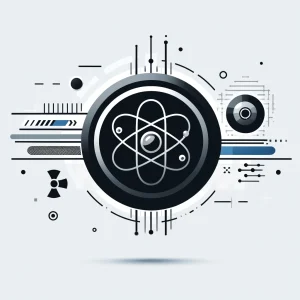Unlocking the Potential of Thorium Reactors
As the global demand for cleaner and safer energy sources grows, thorium reactors emerge as a promising alternative to traditional nuclear power. This article explores the potential of thorium reactors, their advantages, current research and development, challenges, and the future outlook for thorium as an energy source.
What is a Thorium Reactor?
A thorium reactor is a type of nuclear reactor that uses thorium-232 as fuel, a naturally occurring radioactive chemical element. Unlike conventional reactors which use uranium or plutonium, thorium reactors utilize a thorium fuel cycle where thorium-232 is transmuted into uranium-233, which then undergoes fission. This process promises a more abundant, safer, and more efficient way to generate nuclear power.
Advantages Over Traditional Nuclear Power
Thorium reactors offer several compelling advantages over traditional nuclear power plants. Firstly, thorium is more abundant in nature than uranium, making it a more sustainable resource. Secondly, the waste produced by thorium reactors is less radioactive and has a shorter half-life, reducing the environmental and security concerns associated with nuclear waste management. Additionally, thorium reactors are designed to be inherently safer, with reduced risks of a nuclear meltdown and less potential for their materials to be repurposed for weapons.
Current Research and Development Status
Globally, several countries are investing in the research and development of thorium reactor technology. Notable projects include India’s ambitious thorium program, which plans to meet a significant portion of the country’s electricity needs through thorium-based reactors by 2050. Other countries like China, Norway, and the United States have also been exploring various thorium reactor designs and conducting experiments to test their feasibility and efficiency.
Challenges in Thorium Reactor Technology
Despite the promising advantages, thorium reactors face significant technological and regulatory challenges. One major hurdle is the current lack of a fully developed infrastructure for thorium-based fuel cycles, which requires substantial investment and innovation. Additionally, thorium reactors are not yet commercially viable due to high initial development and construction costs. Regulatory hurdles also present a significant barrier, as nuclear power generation is heavily regulated, and new technologies must undergo rigorous approval processes.
Future Outlook for Thorium as an Energy Source
The future of thorium as an energy source looks promising but will depend heavily on continued research, technological breakthroughs, and policy support. As the technology matures and if economic and regulatory challenges can be overcome, thorium reactors could play a crucial role in the global energy mix, offering a cleaner, safer, and more sustainable alternative to conventional nuclear power.
The exploration of thorium reactors is a testament to the ongoing quest for better and safer energy solutions. With sustained investment in research and a favorable policy environment, thorium could very well become a cornerstone of future energy strategies.
Hashtags: #ThoriumReactors, #NuclearInnovation, #CleanEnergy, #SustainableFuture

